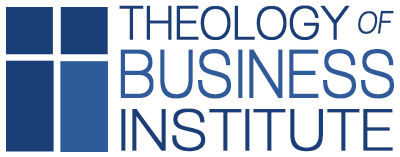How Tithing Can Lead to a Massive Vision

 Do you ever feel like you’re stuck in a trap of small thinking? Personally and professionally speaking, do you lack a big vision for your life?
Do you ever feel like you’re stuck in a trap of small thinking? Personally and professionally speaking, do you lack a big vision for your life?
If so, I have something that might help. It’s called tithing. That’s right… the biblical practice of returning the first 10 percent of your income to God.
You’ve probably heard the story of when Abram tithed in Genesis. Do you realize what happened immediately after he tithed?
Tithing Identifies Who You View as Your Source
After experiencing victory on the battlefield during the war against the kings of Sodom and Gomorrah, Abram felt compelled by love and gratitude to honor God by returning the first 10 percent of the spoils to God, the One he viewed as the Source of his victory. He did this by returning the tithe to God through Melchizedek, “a priest of God Most High” (Gen. 14:17-20). The New Testament explains this process as follows: “Here mortal men receive tithes, but there He [Jesus] receives them, of whom it is witnessed that He lives” (Heb. 7:8). In other words, when we tithe, we are tithing directly to Jesus.
After tithing to God through Melchizedek, Abram’s loyalty to God was immediately tested:
The king of Sodom said to Abram, ‘Give the people to me and take the goods for yourself.’
Abram said to the king of Sodom, ‘I have sworn to the Lord God Most High, possessor of heaven and earth, that I will not take a thread or sandal thong or anything that is yours, for fear you would say, ‘I have made Abram rich.’” (Gen. 14:21)
Abram viewed God as his Source—not himself and certainly not some wicked king.
Not only does tithing test our love and loyalty to God, it tests whether or not we consider God as our Source. Having tithed to God, Abram’s loyalty was confirmed, despite the invitation to put riches before God and others.
If you are your source, keep the tithe. If God is your Source, return the tithe to Him. Just be advised that He is a much more reliable Source for what you need in your life.
Tithing Can Open Your Eyes to a Massive Vision
What happened immediately after Abram tithed reveals a powerful byproduct of tithing: a massive vision.
After these things [the account of Abram’s tithe] the word of the Lord came to Abram in a vision, saying, ‘Do not fear, Abram, I am a shield to you; Your reward shall be very great… Now look toward the heavens, and count the stars, if you are able to count them… so shall your descendants be. Then he believed in the Lord; and He reckoned it to him as righteousness.” (Gen. 15:1,5-6)
If Abram would have accepted what the king of Sodom was offering in exchange for his loyalty to God, he would not have had the faith to expect greater acts and revelations from God. Because Abram tithed, he was prepared to resist the temptation to credit anything but God as the Source of his victory and provision. As a result, Abram’s trust in God increased, opening his eyes to behold God’s destiny for his life and for his people.
Tithing is not merely a financial issue. Tithing helps to prepare us for fulfilling the will of God in every aspect of our lives. It is a constant expression of our dependence upon God that enables us to believe God for greater things concerning our businesses, relationships, health, finances, and more. Tithing prepares us to receive God’s vision for our personal and professional lives. Tithing is a habit of faith that helps us to believe God for the impossible… not merely for what we can achieve through the unreliable source of our feeble human strength.
The Bible says, “All the tithe of the land… is the Lord’s” (Lev. 27:30). At no point in history has this reality become less of a reality. All the tithe is the Lord’s. Period. That’s because He is the Source of all. “The earth is the Lord’s, and all it contains, the world, and those who dwell in it” (Psa. 24:1).
Each time we receive a financial blessing, God eagerly waits to see if we will express our reliance on Him by returning the first 10 percent of each paycheck, dividend, gift, inheritance, etc. He wants to know whether or not we will acknowledge Him as our Source… or if we view ourselves as our own counterfeit sources of provision.



